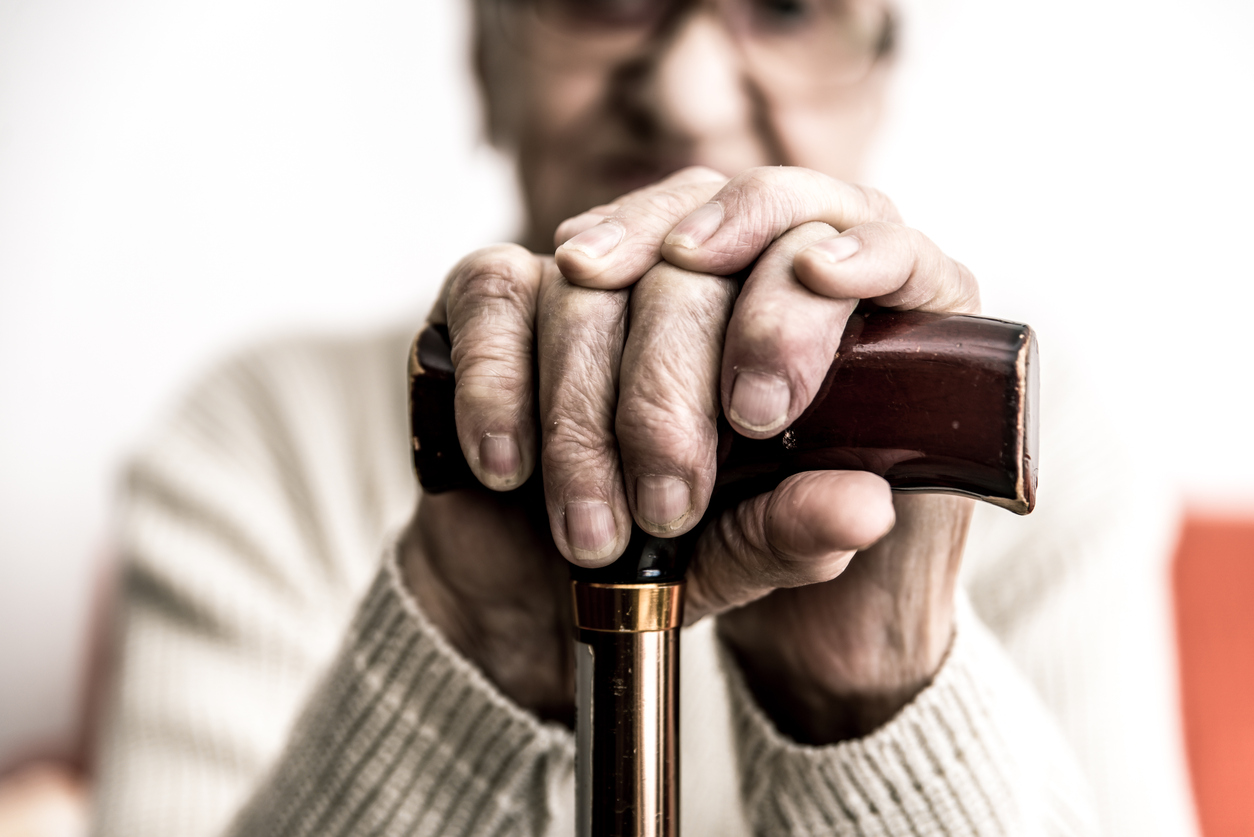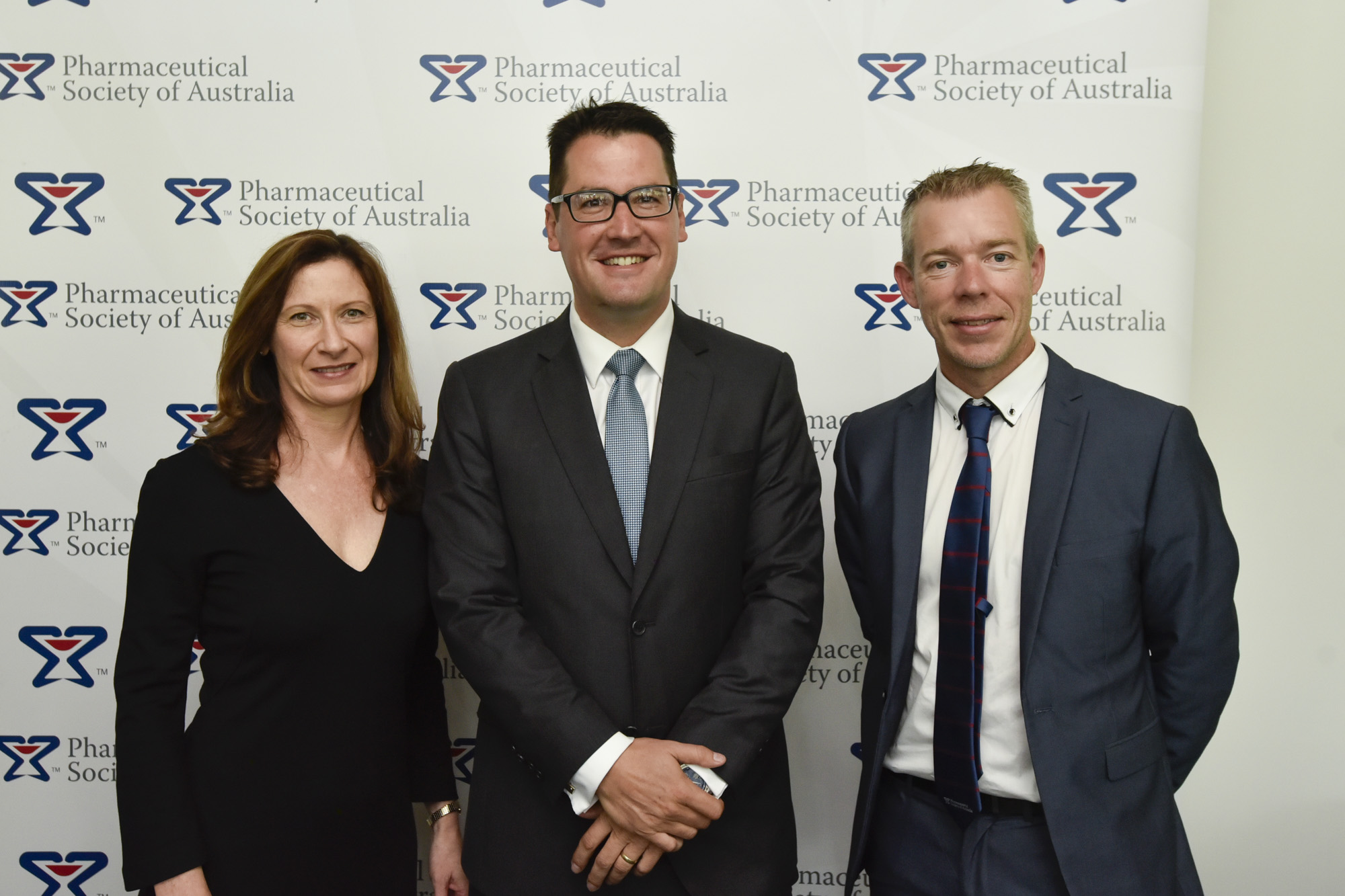Pharmacists are embracing new opportunities to play a greater role in multidisciplinary teams focused on mental health.
Australian Pharmacist spoke with two mental health experts – one a practising pharmacist and the other a former general practitioner (GP) – about the increasingly valuable role of pharmacists in mental health care, while mental health advocate Annette Baker shed light on the experience of losing a loved one to mental illness.
The recent Federal Budget 2017-18 highlighted mental health as a national priority, with the Government devoting $15 million to mental health research and $11.1 million to suicide prevention. The Budget also lifted the Medicare rebate freeze so people with chronic mental health problems will not have to think twice before seeing a doctor.
Although medicines are not the primary treatment option for mental illness, in 2015-16, 36 million prescriptions were provided for mental health-related medications.1 Of these prescriptions, 87.6% were provided by GPs rather than psychiatrists. There is clearly a strong need for pharmacists to be closely involved in providing mental health care.
PSA’s Framework for pharmacists as partners in mental health care states that pharmacists are well placed to support mental health because they ‘have a strong primary healthcare role and, due to their accessibility, are often the first health professional contacted by a consumer with a health concern.’2
Here to help
Dr Claire O’Reilly, Senior Lecturer in Pharmacy Practice at The University of Sydney and a practising community pharmacist, said people trust pharmacists because they are so accessible to the public.
‘Often people tell their pharmacist things they haven’t mentioned to other healthcare professionals,’ said Dr O’Reilly, a former PSA National Vice President. ‘So pharmacists have a triage role in mental health where they discuss a patient’s situation, identify potential issues and perhaps refer them to a GP.’
The most common mental health concerns community and hospital pharmacists encounter on a daily basis are depression and anxiety. People often visit their local pharmacy with early signs such as stress or poor sleep. Because depression and anxiety are so common, antidepressants made up 68.7% of all mental health-related prescriptions in 2015-16.1
In the last year, community pharmacists have begun dispensing the antipsychotic clozapine, previously available only from hospital pharmacies because of its potentially dangerous side effects.
Dr O’Reilly said, ‘I think this is a good thing because community pharmacies are becoming more involved in ongoing care for patients with schizophrenia, who can now access their medicines all in one place.’
Dr O’Reilly is an accredited instructor of Mental Health First Aid, which is on the way to becoming as widely available as regular first aid.
‘PSA runs evidence-based Mental Health First Aid Training across the country to up-skill pharmacists in identifying the signs of mental health conditions and providing initial support. ‘I recommend all pharmacists complete Mental Health First Aid, which empowers them to feel comfortable having conversations about mental health. We are starting to see more pharmacists specialising in this area, hiring in-store counsellors or nurturing close links to local support groups and psychologists.’
Dr O’Reilly highlighted that the physical health of patients with severe mental illnesses often goes unmonitored: ‘They may need extra help from pharmacists with things like smoking cessation, weight loss and diabetes.’
In 2011, mental health and substance use disorders accounted for an estimated 12% of the total burden of disease, second only to cancer and cardiovascular diseases.3
‘Lots of innovative pharmacies are embracing new mental health services and there is growing interest among pharmacists as the stigma around mental health decreases in the community,’ Dr O’Reilly said.
‘It makes sense that more pharmacists are specialising in mental health as the profession embraces programs and professional services outside of the dispensary, which PSA has strongly advocated for.’
Dr O’Reilly’s research specialties include exploring new roles for pharmacists as part of a multidisciplinary mental health care team.
‘I think pharmacists will be able to help more once they have a more defined mental health role. We can contribute to mental health care in many ways, but they are not always recognised or remunerated.
‘These services need to be implemented in a more structured way so pharmacies can choose their speciality, such as offering a clozapine service or adherence aids for particular groups.’ Dr O’Reilly, who also evaluates new mental health training and education programs for pharmacists, said this area needs to be explored more.
‘There are mental health-focused areas of study for pharmacists at some universities, but no specific qualification. This would be a valuable addition to pharmacy education in Australia. Many other countries already have such qualifications – the UK has credentialed mental health pharmacists who are trained at institutions such as the College of Mental Health Pharmacy.’
Back on track
Dr Stephen Carbone is the Head of Research and Evaluation at beyondblue and a former GP with experience in specialist mental health. His team manages the evaluation of beyondblue’s mental health programs and commissions research projects into depression, anxiety and suicide.
Dr Carbone emphasised how common mental health conditions are in the community.
‘About 20% of people experience a mental health condition in any given year,’ Dr Carbone said. ‘Over their lifetime, that figure grows to 45%. Many people experience either one significant episode or a relapsing pattern of symptoms. A small group (about 15%) have chronic, persistent symptoms of conditions like depression or schizophrenia.
‘These conditions have a big impact on peoples’ quality of life, on their relationships, work and social life. If left untreated, they can lead to severe complications such as suicide.’
The prevalence of these conditions means people can slip through the cracks of a strained health system. The Federal Government is finalising the Fifth National Mental Health Plan to improve mental health care in priority areas such as suicide prevention, stigma reduction, and Aboriginal and Torres Strait Islander mental health.4
Suicide is the leading cause of death for people in Australia between the ages of 15 and 44; many people first experience depression in adolescence. Dr Carbone said it was vital to seek help from medical practitioners.
‘For lots of people, symptoms will continue until they receive appropriate treatment. The sooner you get treatment, the sooner you can get your life back on track. That’s why early intervention through GPs or pharmacists is essential.’
According to Dr Carbone, more people are thinking of mental illnesses like other conditions that need a multidisciplinary approach, such as asthma. There are plenty of opportunities for inter-professional collaboration between pharmacists, GPs and psychologists.
‘A multidisciplinary team approach is essential, and that includes nonmedical services such as housing, financial services and disability support. Pharmacists are a vital part of that team. They have a lot of interaction with mental health patients, providing oversight, guidance and advice,’ Dr Carbone said.
Pharmacists can play many roles: community education, raising awareness, dispensing psychotropic medicines, monitoring adherence to treatment and offering lifestyle advice.
‘Stigma is a big issue – it gets in the way of people seeking help because they feel embarrassed or judged. This is where pharmacists’ open and non-judgemental attitude is so important. They offer the same approach to any consumer who walks in the door.
‘It’s vital for people to feel they aren’t being dealt with differently or discriminated against. People with mental health conditions have reported that their issues were minimised or not taken seriously by health professionals. Pharmacists can help remedy that.’
People’s experiences of mental health conditions vary greatly, so pharmacists and other health professionals must tailor their treatment to the individual.
The Stepped Care Model, which is currently coming through in the Government’s reforms, takes into account that people with lower-risk conditions may benefit from a different approach to those with chronic or severe conditions. The model aims to provide flexible care rather than a ‘one-size- fits-all’ method.5
Pharmacists can also promote new programs that equip people to look after their own mental health. Online packages like the MoodGYM Training Program or MindSpot Clinic offer a series of self-guided modules supported by a phone counsellor or psychologist.
‘In communities, particularly rural communities, without a mental health specialist, it can make a big difference when the local pharmacist makes these services readily available in a safe space.’
The highest mental health-related prescription and patient rates are associated with people over 65, women, and those living in inner regional areas.1 Seeking to address some of these problems, the recent Federal Budget included greater access to telehealth and telemedicine for psychology services in rural and remote areas.
‘The rate of suicide is significantly higher in rural areas,’ Dr Carbone said. ‘Various factors contribute to help-seeking, and one of the most important is the availability of healthcare professionals.
‘GPs are spread relatively evenly across the country, but there is a big skew in the distribution of psychologists and psychiatrists to cities rather than rural areas. Technology can help overcome this access gap, with the aid of pharmacists who provide guidance and raise awareness.
‘Mental health conditions can sometimes be better conceived of as chronic conditions, which means good management is very important, as is working towards what is important to the patient, like being part of the community or finding a job. In the end, health professionals should offer services that reflect where the patients is at and what their goals are.’
Support
If you are experiencing mental health issues, talk to a GP, pharmacist or health professional. For immediate support, contact Lifeline on 13 11 14 or the beyondblue Support Service on 1300 22 4636.
Jarryd Luke is Communications Officer at PSA.
References
- Australian Institute of Health and Welfare. Mental health-related prescriptions. 2016. At: https://mhsa.aihw.gov.au/resources/prescriptions/
- Pharmaceutical Society of Australia. Framework for pharmacists as partners in mental health care. 2013. At: psa.org.au/downloads/ent/uploads/filebase/corporate/advocacy/3809-Mental-health-framework_final.pdf
- Australian Institute of Health and Welfare. Prevalence, impact and burden. 2016. At: https://mhsa.aihw.gov.au/background/prevalance/
- Australian Government Department of Health. Fifth national mental health plan. 2016. At: health.gov.au/internet/main/publishing.nsf/content/mental-fifth-national-mentalhealth-plan
- Australian Government Department of Health. Stepped care. 2016. At: health.gov.au/internet/main/publishing.nsf/content/2126B045A8DA90FDCA257F6500018260/%24File/1PHN%20Guidance%20-%20Stepped%20Care.PDF














 PSA Chief Operating Officer Deb Bowden, Senator Zed Seselja and PSA National President Dr Shane Jackson.[/caption]
PSA Chief Operating Officer Deb Bowden, Senator Zed Seselja and PSA National President Dr Shane Jackson.[/caption]





 [post_title] => New Pharmacy House opens
[post_excerpt] =>
[post_status] => publish
[comment_status] => open
[ping_status] => open
[post_password] =>
[post_name] => new-pharmacy-house-opens
[to_ping] =>
[pinged] =>
[post_modified] => 2018-04-05 12:33:52
[post_modified_gmt] => 2018-04-05 02:33:52
[post_content_filtered] =>
[post_parent] => 0
[guid] => http://psa.studionerve.com/?p=1231
[menu_order] => 0
[post_type] => post
[post_mime_type] =>
[comment_count] => 0
[filter] => raw
)
[title_attribute] => New Pharmacy House opens
[title] => New Pharmacy House opens
[href] => http://psa.studionerve.com/new-pharmacy-house-opens/
[module_atts:td_module:private] => Array
(
)
[td_review:protected] => Array
(
)
[is_review:protected] =>
[post_thumb_id:protected] => 1239
)
[post_title] => New Pharmacy House opens
[post_excerpt] =>
[post_status] => publish
[comment_status] => open
[ping_status] => open
[post_password] =>
[post_name] => new-pharmacy-house-opens
[to_ping] =>
[pinged] =>
[post_modified] => 2018-04-05 12:33:52
[post_modified_gmt] => 2018-04-05 02:33:52
[post_content_filtered] =>
[post_parent] => 0
[guid] => http://psa.studionerve.com/?p=1231
[menu_order] => 0
[post_type] => post
[post_mime_type] =>
[comment_count] => 0
[filter] => raw
)
[title_attribute] => New Pharmacy House opens
[title] => New Pharmacy House opens
[href] => http://psa.studionerve.com/new-pharmacy-house-opens/
[module_atts:td_module:private] => Array
(
)
[td_review:protected] => Array
(
)
[is_review:protected] =>
[post_thumb_id:protected] => 1239
)












